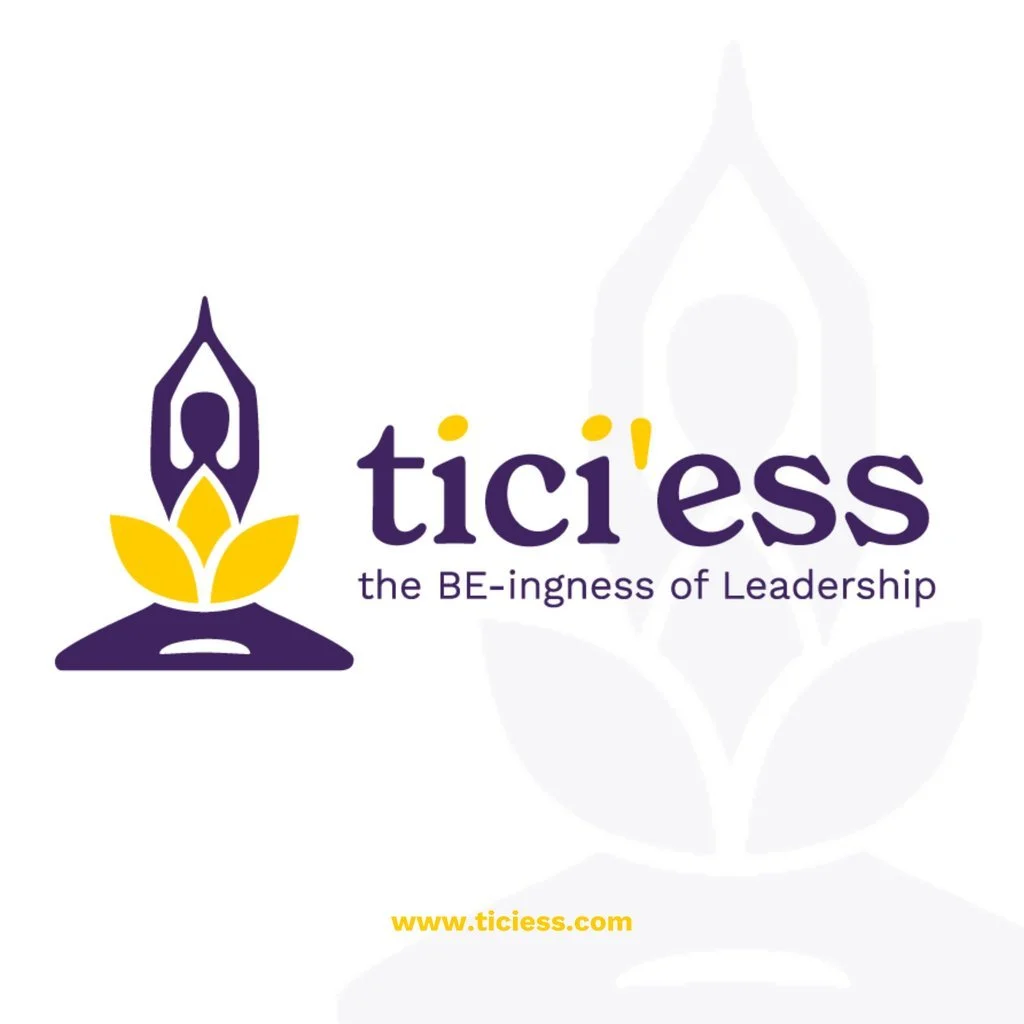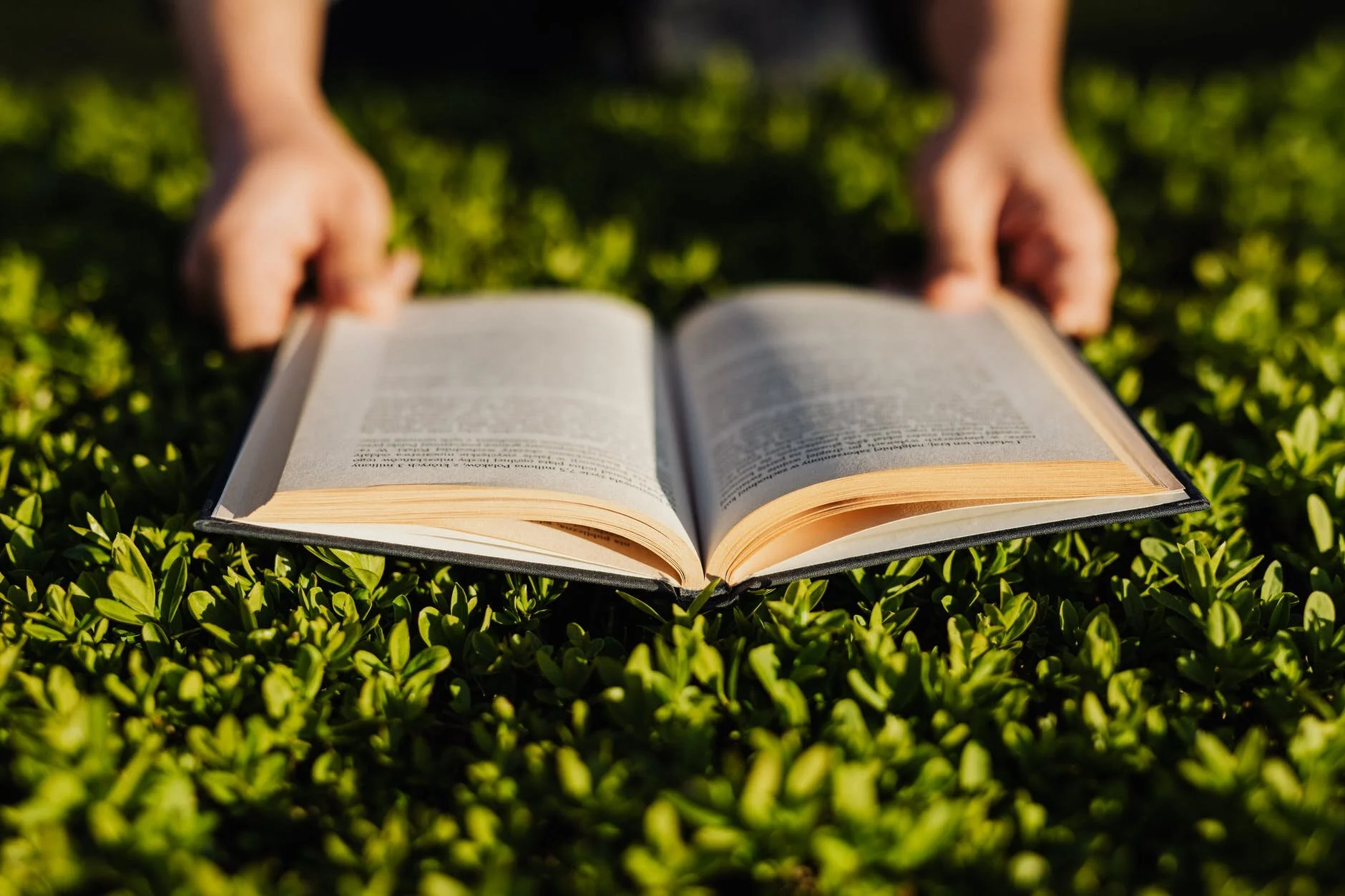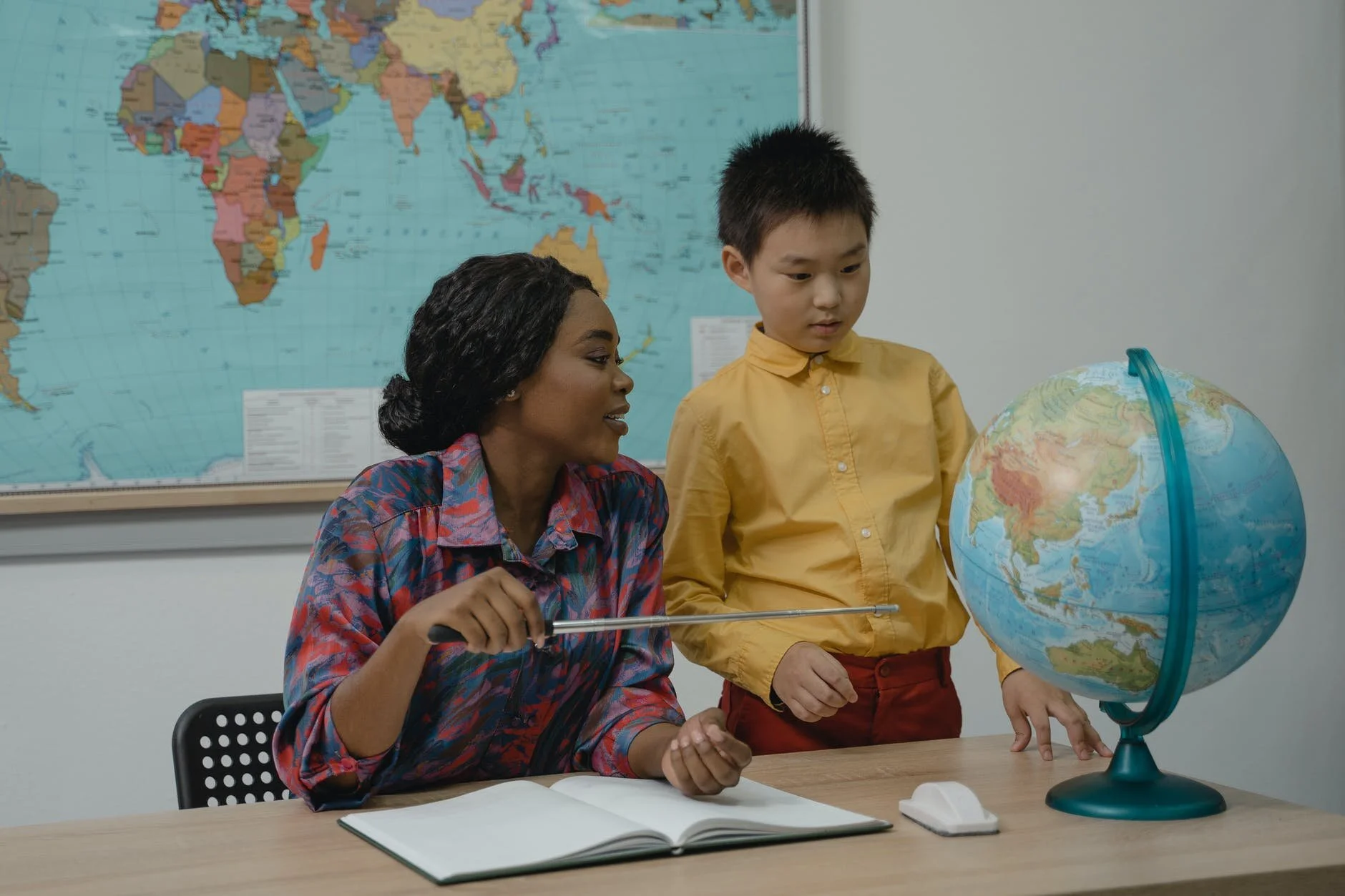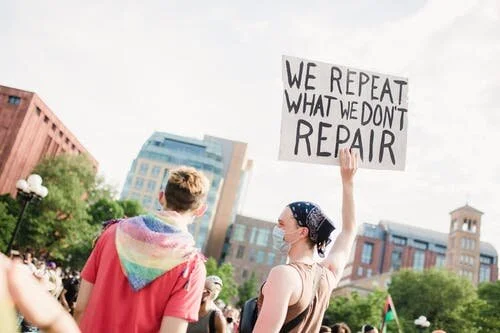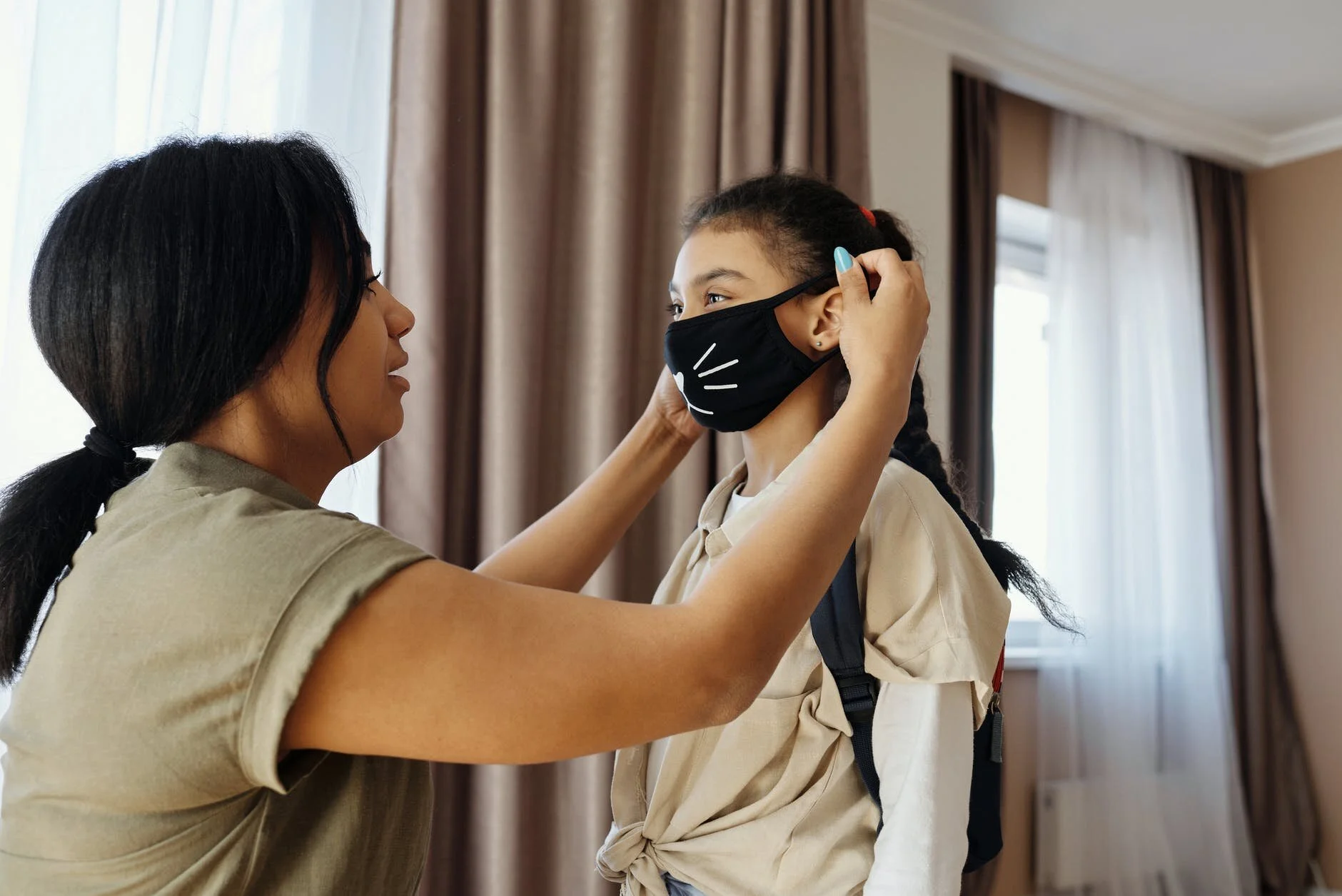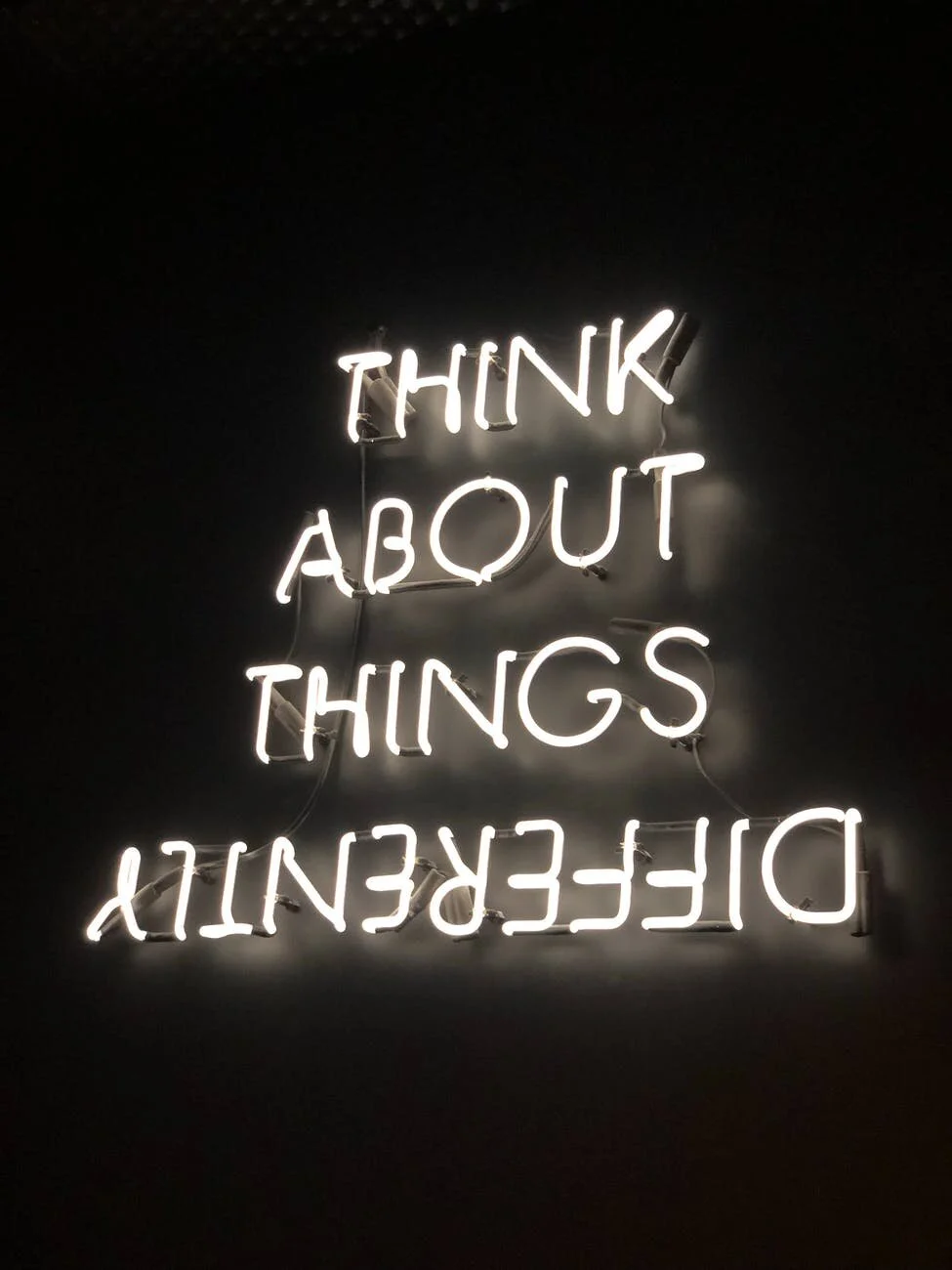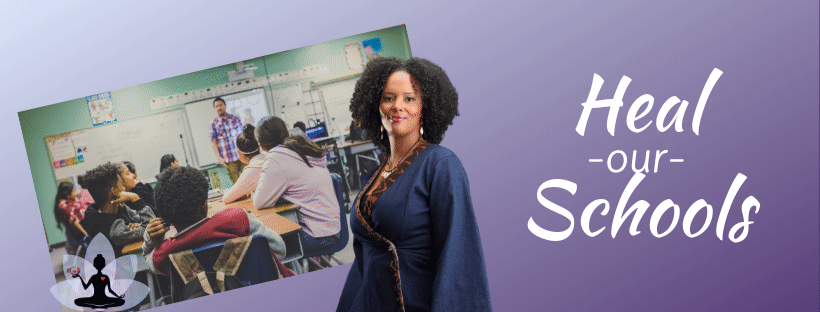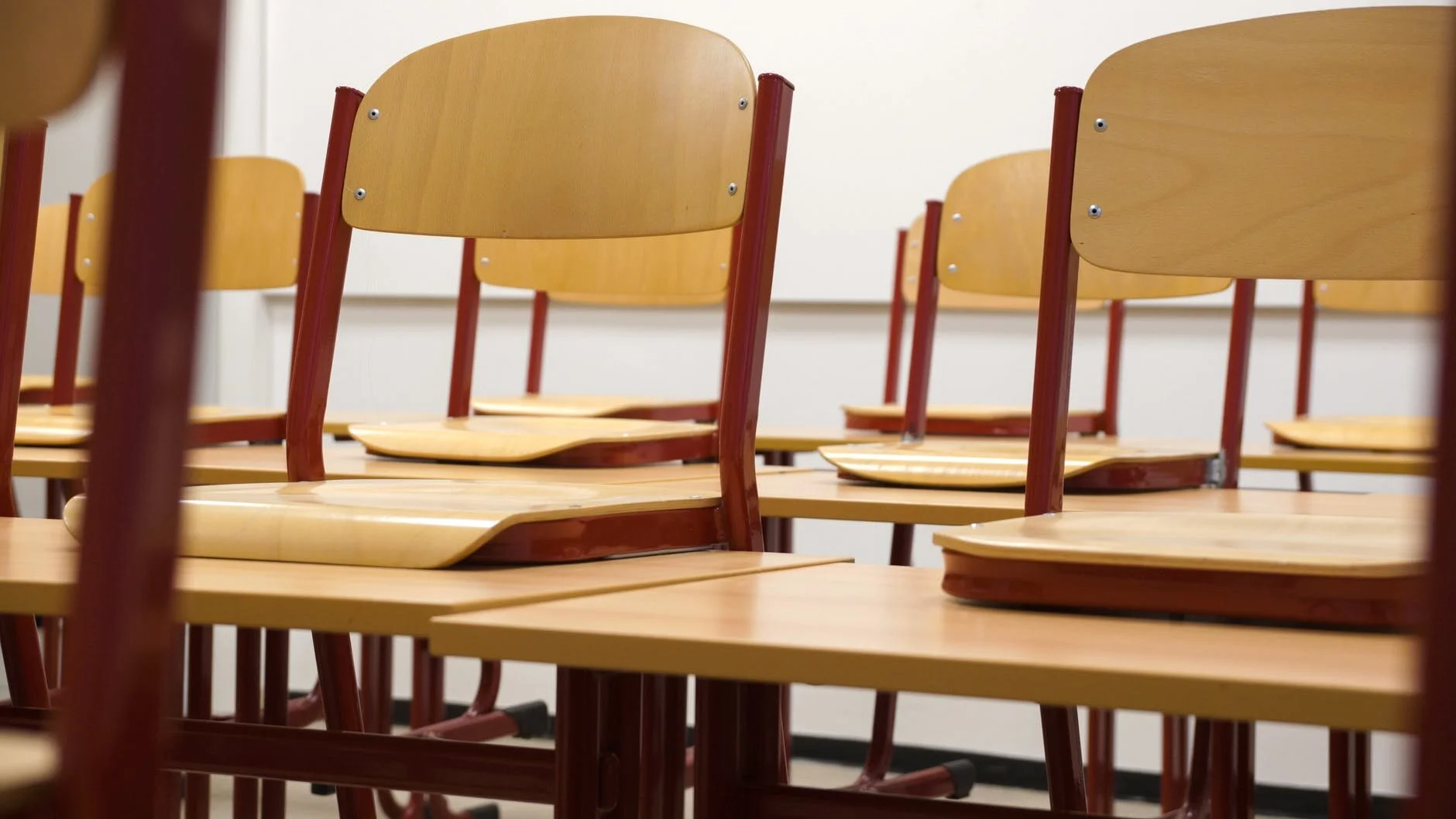Ep. 181: The Power of Racial Healing w/ Tovi Scruggs-Hussein
Essential Question: How can prioritizing racial healing contribute to the effectiveness of Diversity, Equity, Inclusion, and Belonging (DEIB) initiatives?
Guest: Tovi Scruggs-Hussein, former guest on the podcast–summer of 2020 (Ep 77) when we discussed racial healing as a crucial component of achieving equity in schools and communities.
In this episode, we delve into the work and philosophy of Tieces, a transformative figure in mindfulness and social healing. For those unfamiliar with Tieces, their work focuses on fostering healing-centered and trauma-responsive leadership, with a particular emphasis on equity, inclusion, and belonging. Tieces’ tailored meditations and insightful writings have resonated deeply across diverse audiences, addressing both personal and collective healing.
Tieces’ work reaches a broad audience but is particularly impactful for individuals and leaders committed to social justice and personal transformation. While some of their writing addresses white people, offering pathways to greater awareness and allyship, their overall approach is inclusive and geared toward anyone seeking deeper understanding and healing.
Join us as we explore these profound insights and practical strategies for fostering healing and dynamic leadership in today's complex world.
Resources Mentioned:
Do Your Fudging Homework:
Hope: “How Mindfulness Can Help us Heal White Fragility” and “Uncovering your Racial Bias: Mindlessfulnes for Growth & Healing”
Tovi: Start your meditation practice & let it be personal to you.
Ep. 160: New Lunch Bag, Who Dis?
EQ: How can we navigate the evolving landscape of education to ensure a successful and fulfilling return to school for students, educators, and families?
We are baaaack to school. Full disclosure, this is an educator centered episode so those of you who want to skip to the next episode, we don’t blame you! In this episode we discuss various feelings about the return to school. Megan opens up about her current state of affairs and Hope is already back in the classroom! This year she is focused on the role of psychological safety in collegial relationships.
Related Links:
From Center for Creative Leadership
Do Your Fudging Homework:
Hope: approach this year with openness to others–how can you improve the psychological safety of your students and colleagues by your behaviors, interactions, etc?
Megan:
Ep. 134: Back to Life, Back to Reality
EQ: What concerns, questions, ideas, or fears do you have for the upcoming school year?
In this episode of IWL, Hope and Megan recount the last few years in education. From ”we think the pandemic is over but wait, surprise it’s not” to ”we’re back to normal” to ”Pandemic is over now…maybe, we think.” They’ both excited and nervous about the return to school this year. There are a wide range of contextual factors shaping the upcoming school year. Their discussion centered on how teachers might “protect your peace” this school year.
Previous Back to School Episodes:
Do Your Fudging Homework:
Megan: evaluate your situation, cut ties with the negative folks, prune your circles or get involved in something that inspires you.
Hope: Belonging Through a Culture of Dignity: The Keys to Successful Equity Implementation Cobb, Floyd
Ep. 122: The Scoop on International Schools, Part II
Note: This episode was recorded mid-February, prior to the invasion of Ukraine.
EQ: How are international schools uniquely situated to fight, perpetuate or contribute to educational inequities around the world
Guest: Yvette Santos Cuenco a school counselor at the Edmund Burke Independent School in DC.
Hope and Megan continue their conversation with the amazing Yvette about the inner workings and nuances of international schools. In this episode the three of them dive into what the DEIJ landscape looks like on the international level. They discuss how over the last several years there has been movement in being open about the work, but discuss how and why the work can feel so slow on the international level. Also, how International schools have unique responsibilities, barriers, and challenges to equitably serving all students in DEIJ work. The conversation focuses on what those might be as well as how International schools as well as educators in these spaces can continue to tackle the work within this. On the flip side of the challenges, they also discuss how International Schools are uniquely positioned to tackle this work in ways that schools in the US are not.
Related Sources:
Darnell Fine @de_fine
Champagne & Real Pain
🥂International School Services (ISS) pushing the DEIJ work in international schools
🥂 Raise a glass to all past students. Especially those celebrating Black History Month or Lunar New Year
🥂All those that are having honest and challenging conversations around DEIJ work.
👎🏻Book burning, cameras in schools, and overall the laws restricting teachers
👎🏻Any school district that is making it more difficult for their staff. Also those that are sending in bomb threats for HBCUs; HBCUs are undeterred
👎🏻Another no knock warrant murder of Amir Locke in Minneapolis
Do your fudging homework:
Hope: Educators, look into your options! Don’t stay where you aren’t appreciated!
Yvette: Find a place where you are valued as a teacher!
Megan: Find the right fit as a teacher, don’t leave the profession!
Ep. 109: Back to School, Mail Bag Edition
EQ: What concerns, questions, ideas, or fears do you have for the upcoming school year?
Today’s episode is the start of our Back to School series. First, we’re going to discuss listeners' ideas, concerns, questions, and fears shared with us. We appreciate everyone who took the time to send us your thoughts.
Then, we’re going to record an episode specifically targeting educators returning to the classroom--we’ll dig into creative ideas and ideally leave you with some hope & inspiration for the weeks ahead. Lastly, we’ll dive into the anatomy of a school district and levers of power with a guest who is a teacher, union activist, and school board member! We’re really excited for the episodes ahead.
This conversation is an exploration of what “normal” school years mean and what our listeners are thinking about as we head into fall. While we may not be full-blown quaranteaching, we are returning to school this fall with a pandemic hovering over our shoulders.
Related Sources:
Gov. Desantis signed executive order that would strip schools of funding for imposing mask mandates
Gov. Inslee requires students & staff to wear masks this fall
A special thanks to all our listeners who contributed to this conversation via Slack, Twitter, and Facebook. We appreciate your engagement!
Ep. 108: Hot Reader Summer
EQ: What can woke-aspiring individuals do to have a hot reader summer (hint: read books)?
Megan and Hope are joined by Lincoln High School Librarian, Kristen Sierra. They sit down to discuss all of the best reads and what has been at the top of their list. From easy vacation reads, books to read as a family, and books to push your thinking and learning, they cover it all in this episode! Check out a previous conversation with Kristen about Decolonizing Your Bookshelf.
Vacay Reads/Easy Reading:
Furia, Yamile Saied Mendez
Leviathan Wakes (Expanse Series), James A Corey
Rodney Scott’s New Cookbook - Rodney Scott’s World of BBQ
Roar, Cecilian Ahern. Short stories separate so something you can read and put down/pick up easily.
A Wicked Kind of Husband, Mia Vincy (romance)
The Lovely War, Julie Berry (highly recommend the audiobook on Libro.fm)
Firekeepers Daughter, Angeline Boulley
Patron Saints of Nothing, Randy Ribay
Young Adult:
Grown, Tiffany Jackson
White Smoke, Tiffany Jackson
Blackout, Dhonielle Clayton, Tiffany D. Jackson, Nic Stone, Angie Thomas, Ashley Woodfolk, Nicola Yoon
Clean Getaway, Nic Stone
Dear Justice, Nic Stone
From Little Tokyo, With Love, Sarah Kuhn (silly YA Romcom)
Concrete Rose, Angie Thomas (especially the audiobook)
Emergency Contact, Mary Choi (YA romcom)
Walk Two Moons, Sharon Creech
On the Come up, Angie Thomas
Concrete Rose, Angie Thomas
Nonfiction Favs:
What Unites Us: The World Citizen Series, Dan Rather
(Several Channel 253 members recommended) How the Word is Passed: A Reckoning with the History of Slavery Across America, Clint Smith
March, John Lewis
How We Get Free: Black Feminism & the Combahee River Collective, Keeanga Yamahtaa Taylor
Treatise on investing mutual funds. Stock picking is like picking a needle in a haystack with index fund investing, you buy the whole haystack: The Little Book of Common Sense Investing, John Bogle
Know my Name, Chanel Miller (was a #nerdfarmreads book)
Unrig, Dan G. Newman
Fault Lines in the Constitution: The Framers, Their Fights, and the Flaws that Affect us Today, Cynthia Levinson and Sanford Levinson
Caste: The Origins of our Discontent, Isabel Wilkerson
Persepolis: The Story of a Childhood, Marjane Setrapi, Mattias Ripa
After the Fall: Being American in the World We’ve Made, Ben Rhodes
Up From Slavery, Booker T. Washington
Yes Please, Amy Poehler
Bossypants, Tina Fey
A Promised Land, Barack Obama
Something You Can’t Help But Love
The Once & Future Witches, Alix E Harrow
The Pale Horse, Agatha Christie
Open Book, Jessica Simpson
Green Lights, Mathew McConnaghy
Something Every Teacher Should Read:
“These Kids Are out of Control: Why We Must Reimagine Classroom Management for Equity”, Milner, Cunningham, et al
We do this Till We Free Us: Abolitionist Organizing and Transforming Justice, Mariame Kabe (the science & art of organizing)
Kristen Sierra’s book “Core Values in School Librarianship”
Pillars of the Republic: Common Schools and American Society, Carl F. Kaestle
The Practice of Adaptive Leadership, Ronald A. Heifetz, Alexander Grashow, Marty Linsky
Raising Free People: Unschooling as Liberation and Healing Work, Akila S. Richards
Silencing the Past, Michel-Rolph Trouillot
Things to Read as a Family:
I survived (series), Lauren Tarshis
Percy Jackson (series), Rick Riordan
Babysitters Club (newer series), Jordan Silver
Ep. 105: Critical Race Theory & Other Things White People Don’t Understand
EQ: How is the panic around Critical Race Theory indicative of white nonsense and why has it become such an easy target for Conservative Politicians?
In this episode of IWL, Megan and Hope dig into the kerfuffle that is the recent critical race theory (CRT) debate. Built on nonsense and white fragility, CRT is now a phrase donning the lips of many a well-meaning but poorly informed person. Armed with fear and misunderstanding, some communities are demanding school boards institute bans and establish parameters for how teachers teach history (and other related topics). From “why are folks mad” to “are we actually teaching CRT in our classrooms”, these IWLs share their own understanding of the topic and where they are still learning, growing or feeling confused.
Referenced in this episode:
The NYT 1619 Project Is Reshaping the Conversation about Race
"Spontaneous parent campaign" against Critical Race Theory in schools being organized by DC lobbying firm, known for past astroturf campaigns
If Critical Race Theory is Banned, are Teachers Protected By the First Amendment?
Do Your Fudging Homework:
Hope: Citizen Ed/Nate Bowling Interview: What CRT bans mean for teachers;
Katy Swalwell podcast Our Dirty Laundry
Ep. 104: Interrupting Whiteness One Zoom Session At a Time
EQ: Why do we need racial affinity groups to combat racism and how do they lead to sustainable change?
Guests:
Emily Meadows is an LGBTQ+ consultant and published author specializing in international schools. If you missed our conversation on creating inclusive spaces, go download Episode 99.
Tamara Friedman is a NBCT, school leader, and classroom teacher. She works towards implementing culturally relevant and anti-racist pedagogy in her classrooms and currently teaches 4th grade at The American School of the Hague.
In this episode we discuss the distinctive ways that racism and white supremacy manifest in an international school context. While commonly appearing in the form of deflection because the school is “diverse”, explicit anti-racism work is long overdue. Our guests, Emily and Tamar, share their journey to establishing the Whiteness Accountability Group for International Educators including how it is rooted in volunteer participation, leading through vulnerability and story-telling, and collective leadership. Additionally, they discuss the need for accountability to each other, group participants, and to people of color.
To understand the purpose and framing of racial caucusing, check out the following documents:
Do Your Fudging Homework:
Hope: Racial Equity Tools & Culturally responsive Leadership, Me & White Supremacy by Layla Saad
Megan: If you work in a school, make sure you know what your School’s Culturally Responsive Teaching policies are and know who the leadership team is that is responsible to implementing those.
Tamara: Franchise Kendall Understanding White Privilege and Harvard Implicit Bias Test
Emily: Join our group by emailing us; Learning for Justice Standards;
Ep. 93: IWL Crossing: Tacoma School Schedules and Teacher Respect; WTF TPS?!
Over the last week Tacoma social media has been abuzz with concerns about a “new” classroom schedule for Tacoma Public Schools that is to go into effect on February 8. The schedule shows “in person” teaching in the afternoons and remote learning in the morning.
Why? Our COVID 19 numbers are far worse now than they were last March, and there are new variants that are even more contagious. Yes, everyone, especially teachers, students and parents, wants to get back to normal. But we need to do that safely. Can we safely return students to the classroom now?
Well, it turns out that the schedule showing “in person” class periods really means “eventually, when we return to in person teaching, it will be on this schedule, so let’s try this schedule out now even if it is disruptive and results in less actual class time with students.” In response, many teachers and parents are saying “WTF TPS?!!!”
In this joint episode of Crossing Division, Tacoma’s Talk Show, and Interchangeable White Ladies (IWL), Tacoma’s premier teaching and equity podcast, IWLs Hope Teague-Bowling and Megan Holyoke join Evelyn Lopez to talk about what’s going on in Tacoma School World. Why a schedule change now? Has the teachers’ union sold out its members? And what we can do about it? Listen and let us know what you think, and what should happen next!
To understand this better, check out the following links:
Ep. 84: This is Where We're At
EQ: How can you, through the Trauma that is 2020, navigate figuring out what you can and can’t control and find the strength and persistence to change the things you can?
In this episode Hope & Megan recap ideas from episode 80 “Back to School Coronavirus Edition” and the predictions we had about returning to school. Now, weeks into the school year it’s apparent no one knows what they’re doing and we’re all barely holding on by a thread. Teachers, students, and families alike are trying to maintain some semblance of sanity with the ever shifting tide of expectations. With basically no leadership from the Federal Government and varied support from local leadership, the stress and trauma from living in the Rona Era continues to escalate. The conversation runs the gamut of topics including why we should/shouldn’t have in-person teaching, how we are trying to focus on what we can control and how we are finding slivers of joy in the midst of a pandemic.
We hope that educators listening will feel a sense of solidarity and perhaps walk away from this with a few ideas for your own instructional practice. We also hope that for listeners not in education, this conversation shines some light on what is happening.
Champagne and Real Pain:
🥂 All of the teachers out there that have been showing up the best they can, with all odds against them, and doing the damn thing.
👎🏻 Real Pain to 2020 man… like, why won’t it stop? Also, to the governor of Texas for an egregious block on Texans' right to vote.
Do Your Fudging Homework:
Megan: Go outside and get away from screens. Give your brain a break. Do it. You’ll like it. I promise.
Hope: Build in some time to escape or do something that brings you joy even if you feel it will put you further behind.
Ep. 81: Getting Comfortable with Discomfort
EQ: How can educators intentionally make space for challenging and engaging conversations in the classroom, be it virtual, hybrid or in-person?
Guests:
Milton Reynold, a San Francisco Bay Area based career educator, author, equity and inclusion consultant and activist.
Stacey Kertsman, a veteran educator and has worked with schools and nonprofits around the country and internationally developing partnership-based programming for students and learners.
This episode is a continuation of a panel discussion with Milton, Stacey, & Hope “Engaging Conversations Online and Off” about why we should embrace challenging conversations in the classroom and how to facilitate these dialogues. One theme of the episode is how to hold complexity of thoughts and seeming contradictions when pursuing equity and justice in teaching and learning. We are often socialized for avoidance and white teachers are especially adept at this, particularly if the conversations include analysis of race. Another theme is what it takes to maintain a sense of urgency while also moving with the ebb and flow of the work. Instead of running towards simple solutions, educators need to grow capacity for discomfort and invest time into the process. Milton and Stacey leave us with practical advice for how to engage in the difficult conversations with ourselves, our colleagues, and our students in the new school year.
Related Reading:
Teaching Tolerance New Resources for Confronting White Nationalism
Castilleja School Core Anti-Racism Competencies
Do Your Fudging Homework:
Stacey---get proximate with someone and push your understanding
Milton--wrap your head around eugenics and read Eugenic Nation by Alexandra Minna Stern
Ep. 77: Racial Healing Is A Crucial Component for Achieving Equity
EQ: Why is racial healing a crucial component for achieving equity in our schools and communities?
Guest: Tovi Scruggs-Hussein is “a visionary educator, author, and award-winning urban high school principal with over 25 years of emotional intelligence training.” Her work on self-transformation and healing through courageous leadership development can be found at Ticiess. Highlights from our discussion include recognizing that educators can be smart and dedicated but still be racist (and uphold racist infrastructure in schools). We further discuss how to make long term change, and grow our compassion for colleagues and students. We cannot serve our students unless we are more balanced in our own personal lives and truly understand our racial and cultural identities. In education, we often ignore that both teachers and students experience educational trauma. It’s only through acknowledgement of this trauma and pursuit of healing that we can achieve equity for all students.
Additional resources:
Do Your Fudging Homework:
Annie: Do some additional research about radical empathy!
Hope: Go read about Racial Healing Allies--download the ebook & sign up for an e-course
Tovi: Please pace yourself (white folks!) and do not burn out.
Follow us on Twitter @IWL_Podcast or Facebook: Interchangeable White Ladies Podcast
Don’t forget to pick up your copy of The Body is Not an Apology for the #readlessbasic book club
Ep. 67: What A Pandemic Reveals About Education Equity--Teaching & Learning During the Covid-19 Outbreak
Note to listeners: This episode was recorded on Saturday March 14. Some information may have changed by the date this was published. Unfortunately, due to timezone issues, Annie was unable to join the discussion.
EQ: What has this pandemic revealed about issues of equity and access in education?
Guests: Aaron Shelby, Secondary Curriculum Coordinator, and Amy Daraiseh, Learning Support at the American School of Abu Dhabi.
Weeks ago, educators in East Asia transitioned to virtual teaching, offering synchronous (live) and asynchronous learning opportunities for students kindergarten through university level. Many international teachers kept tabs on this progression, perusing social media for what was inevitably coming to all of us. Concerns about teaching students with special needs, supporting English language learners, and managing poor internet connection across the globe were hot topics on many message boards. For better or for worse, it seemed the US was living blissfully in denial of the impending virus that would sweep the nation and ask educators to re-examine what it means to teach and to learn in the midst of a pandemic.
To get some perspective on the logistics of remote learning, listen to the conversation “Teaching Online During the Covid-19 Outbreak” Nate Bowling had with two teachers, Jordan Moog and Michele Curley, from the American School of Abu Dhabi.
In this episode, two of Hope’s favorite colleagues join her for a discussion on the range of equity issues rising to the surface in educating in the “new frontier” of the coronavirus. We discuss special education accommodations, tech access, wrap-around services (food, childcare, medical care), and how to provide social-emotional support to students in a time of crisis. Our conversation has a global framing but Hope weaves in Washington specific data and concerns in order to keep listeners grounded in something more familiar.
Learn about what’s happening in WA state:
WA State bill passed to address concerns around graduation
Everyone should follow Seattle Times Staff reporter Dahlia Bazzaz as she keeps tabs on the impact of the coronavirus on education issues in WA state. Start with this article “First Day of No School”
Around the World:
Champagne & Real Pain:
🥂 to Educator Temporary School Closure for Online Community and all the educators making themselves vulnerable to share ideas.
🥂 Naomi Campbell for telling us to wipe down our seats
🥂 American Community School administration and colleagues
👎🏻 to the ashholes who are hoarding TP and being butts to others during a time of crisis
👎🏻 those who are still traveling which puts others in danger
Do Your Fudging Homework:
Hope: keep sharing your resources, bringing hopeful in the midst of chaos
Amy: channel positive energy and spread it to those around you
Aaron: be good to yourself and check in on your neighbor
Follow our guests on the socials: Aaron Shelby (Twitter) Amy Daraiseh (Twitter)
